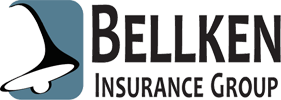Replacement Cost vs. Actual Cash Value for Florida Commercial Property Owners: What’s the Smarter Move?
See How We're Different
or call us: 954-233-0733
Understanding the Basics: Replacement Cost and Actual Cash Value
For commercial property owners in Florida, navigating the complexities of insurance can be daunting. Two terms that frequently arise in discussions about property insurance are "Replacement Cost" and "Actual Cash Value." Understanding the differences between these two valuation methods is crucial for making informed decisions about coverage and claims.
Replacement Cost refers to the amount it would take to replace or repair a property with materials of similar kind and quality, without deducting for depreciation. In contrast, Actual Cash Value (ACV) is calculated by taking the Replacement Cost and subtracting depreciation. This fundamental difference can significantly impact the financial outcome after a loss.
The Importance of Choosing the Right Coverage
Choosing between Replacement Cost and Actual Cash Value is not merely an academic exercise; it has real-world implications for commercial property owners. The right choice can affect not only the premium costs but also the financial recovery in the event of a claim. Understanding these terms helps property owners assess their risks and make choices that align with their financial goals.
In Florida, where natural disasters such as hurricanes can wreak havoc, having the right insurance coverage is essential. The choice between Replacement Cost and ACV can determine how quickly and effectively a business can recover after a catastrophic event. For example, a business that opts for Replacement Cost may find itself in a better position to rebuild and restore operations swiftly, as it can cover the full cost of new materials and labor. On the other hand, a business that chooses ACV may face delays in recovery due to the lower payout, which could lead to financial strain and potential loss of clientele during the rebuilding process.
Moreover, understanding these valuation methods is also vital when it comes to policy renewals and adjustments. As property values fluctuate and the cost of materials changes, property owners should regularly reassess their coverage options to ensure they are adequately protected. This proactive approach not only safeguards their investment but also provides peace of mind, knowing they are prepared for the unexpected. Consulting with an insurance professional can further clarify these options, helping property owners tailor their policies to fit their unique needs and circumstances.
Replacement Cost: A Closer Look
Replacement Cost coverage is often considered the gold standard in property insurance. It provides peace of mind by ensuring that property owners can replace their damaged or destroyed assets without incurring out-of-pocket expenses due to depreciation.
This type of coverage is particularly beneficial for businesses that rely on specialized equipment or custom-built facilities. In these cases, the cost to replace the property can be significantly higher than its depreciated value, making Replacement Cost a more favorable option.
Advantages of Replacement Cost Coverage
One of the primary advantages of Replacement Cost coverage is that it allows property owners to restore their businesses to their pre-loss condition without financial strain. This can be especially important for small businesses that may not have the capital reserves to absorb significant losses.
Additionally, Replacement Cost coverage often leads to quicker claim settlements. Insurers can process claims more efficiently when the focus is on replacement rather than depreciation, allowing businesses to resume operations sooner. This rapid response can be crucial in minimizing downtime and maintaining customer relationships, as businesses can quickly get back to serving their clients without prolonged interruptions.
Considerations for Replacement Cost Coverage
While Replacement Cost coverage offers many benefits, it is essential to consider the associated costs. Premiums for Replacement Cost policies are typically higher than those for Actual Cash Value policies. Property owners must weigh the increased cost against the potential benefits of having comprehensive coverage.
Furthermore, it's crucial to ensure that the property is adequately insured for its Replacement Cost. Underinsuring can lead to significant financial losses, as insurers may apply a co-insurance penalty if the property is not insured to a specified percentage of its value. This means that if a property owner has insured their asset for less than its Replacement Cost, they could end up receiving a reduced payout in the event of a claim, leaving them to cover the difference out of pocket. Regularly reviewing and updating insurance policies to reflect current market values and replacement costs can help mitigate this risk and ensure that property owners are adequately protected against unforeseen events.
Actual Cash Value: What You Need to Know
Actual Cash Value (ACV) is often seen as a more economical option for property insurance. It appeals to property owners looking to save on premiums, but it comes with its own set of challenges. Understanding how ACV is calculated and its implications is vital for making an informed decision.
ACV is determined by taking the Replacement Cost of the property and subtracting depreciation. This means that if a property is damaged, the payout will be based on its current market value rather than the cost to replace it. For some property owners, this can lead to significant shortfalls when it comes time to recover from a loss.
Benefits of Actual Cash Value Coverage
One of the most appealing aspects of ACV coverage is its lower premiums. For businesses operating on tight budgets, this can be a significant factor. The reduced cost allows property owners to allocate funds to other critical areas of their operations.
Moreover, ACV policies can be easier to understand. Since the payout is based on the current market value, property owners may find it simpler to assess their coverage needs without delving into complex calculations related to Replacement Costs. This straightforward approach can be particularly beneficial for first-time property owners or those who may not have extensive experience with insurance policies.
Challenges Associated with Actual Cash Value Coverage
Despite its lower cost, Actual Cash Value coverage can present challenges, particularly in the aftermath of a loss. The depreciation factor can lead to payouts that do not cover the full cost of repairs or replacements, leaving property owners with unexpected expenses.
Additionally, in a state like Florida, where property values can fluctuate due to market conditions, relying on ACV can be risky. Property owners may find that their insurance payout is insufficient to cover the actual costs of rebuilding or repairing their property. This can be exacerbated by the fact that natural disasters, such as hurricanes, can significantly increase the demand for construction services, driving up costs even further. As a result, property owners may face a daunting financial burden when attempting to restore their property to its pre-loss condition.
Furthermore, the concept of depreciation can vary widely depending on the type of property and its age. For instance, a newly constructed building may depreciate at a different rate compared to an older structure, which could lead to disparities in expected payouts. This variability necessitates a careful evaluation of one's property and a thorough understanding of how depreciation is calculated within the context of an ACV policy. Property owners should consider consulting with insurance professionals to ensure they have a clear picture of what their coverage entails and how it aligns with their specific needs.
Comparative Analysis: Replacement Cost vs. Actual Cash Value
When weighing Replacement Cost against Actual Cash Value, several factors should be considered. Each option has its pros and cons, and the best choice will depend on the specific circumstances of the property owner.
For instance, businesses with specialized equipment or unique structures may find that Replacement Cost coverage is worth the investment. Conversely, businesses that are more standard in their operations and have tighter budgets may lean towards Actual Cash Value to save on premiums.
Financial Implications
Financial implications are a significant consideration when choosing between Replacement Cost and Actual Cash Value. While Replacement Cost may require higher upfront premiums, the long-term financial stability it offers can outweigh the initial costs. In contrast, ACV may seem appealing due to lower premiums, but the potential for inadequate payouts can lead to financial strain during recovery.
Property owners should conduct a thorough analysis of their financial situation, considering both current budgets and potential future needs. This analysis can help determine which coverage type aligns best with their financial strategy. Additionally, understanding the depreciation rates of the property and its contents can provide insight into how much value may be lost over time, further influencing the decision between these two coverage types. For example, a business with rapidly depreciating assets may find that ACV does not sufficiently cover the cost of replacing those items, leading to unexpected out-of-pocket expenses during a claim.
Risk Assessment and Business Strategy
Risk assessment plays a crucial role in deciding between Replacement Cost and Actual Cash Value. Property owners need to evaluate their risk tolerance and the potential impact of various types of losses on their business operations.
Incorporating risk management strategies into the decision-making process can provide clarity. For example, businesses in high-risk areas may prioritize comprehensive coverage, while those in lower-risk zones might opt for lower-cost options. Furthermore, businesses should consider the nature of their operations; for instance, a manufacturing company with significant machinery investments may lean towards Replacement Cost to ensure that they can fully restore their production capabilities after a loss. On the other hand, a small retail store with lower-value inventory might find that Actual Cash Value suffices, allowing them to allocate funds to other critical areas of their business. The decision is not merely about immediate costs but also about the long-term viability and resilience of the business in the face of unforeseen challenges.
Real-World Scenarios: When Each Option Shines
Understanding the practical applications of Replacement Cost and Actual Cash Value can provide valuable insights for Florida commercial property owners. Real-world scenarios can illustrate how each option performs in different situations.
Case Study: A Hurricane-Damaged Retail Store
Consider a retail store that faces significant damage from a hurricane. If the store owner has Replacement Cost coverage, they can expect to receive a payout that covers the full cost of repairing or replacing their inventory and property. This allows them to reopen quickly and resume business operations. Additionally, having this coverage can facilitate a faster recovery process, enabling the owner to reinvest in marketing and promotional efforts to attract customers back to the store, which is crucial in a competitive retail environment.
In contrast, if the store owner has Actual Cash Value coverage, they may receive a payout that reflects the depreciated value of their damaged inventory and property. This could result in a payout that is insufficient to cover the costs of replacement, leaving the owner to absorb the difference. The financial strain could lead to difficult decisions, such as whether to scale back inventory or reduce staff, ultimately affecting the store's long-term viability. Furthermore, the emotional toll of navigating the aftermath of such a disaster can be overwhelming, particularly for small business owners who have invested their lives into their establishments.
Case Study: An Office Building Fire
In another scenario, an office building suffers a fire that destroys a significant portion of the structure. The owner with Replacement Cost coverage can rebuild the office to its original specifications without financial hardship. They can also replace any specialized equipment that may have been lost in the fire. This not only ensures that the office can be fully operational again but also allows the owner to modernize certain aspects of the building, potentially attracting higher-paying tenants and increasing the overall value of the property.
On the other hand, the owner with Actual Cash Value coverage may find themselves in a tough spot. The payout will be based on the current value of the building, which may not cover the full cost of rebuilding. This could lead to delays in reconstruction and a prolonged period of lost income. Moreover, the owner might face challenges in securing financing for the additional funds needed to complete the reconstruction, especially if they have already exhausted their reserves. The uncertainty surrounding the timeline for repairs could also impact tenant relationships, as businesses may seek alternative locations, further complicating the owner’s recovery efforts.
Making the Right Choice for Your Business
Choosing between Replacement Cost and Actual Cash Value is a critical decision for Florida commercial property owners. It requires careful consideration of various factors, including financial implications, risk assessment, and the specific needs of the business.
Ultimately, the best choice will depend on the unique circumstances of each property owner. Engaging with an insurance professional can provide valuable insights and help navigate the complexities of property insurance.
Consulting with Insurance Professionals
Engaging with insurance professionals can be one of the most effective ways to make an informed decision. These experts can help property owners assess their needs, understand the nuances of different coverage options, and tailor a policy that aligns with their business strategy.
Furthermore, insurance professionals can provide insights into market trends, helping property owners stay informed about the best practices in the industry. This knowledge can be invaluable in making decisions that protect the business and its assets.
Regular Policy Reviews
Regular policy reviews are essential for ensuring that coverage remains adequate as business needs evolve. As property values change and businesses grow, it is crucial to reassess insurance coverage periodically. This proactive approach can help prevent underinsurance and ensure that property owners are adequately protected against potential losses.
Moreover, regular reviews allow property owners to take advantage of any new coverage options or discounts that may become available, further optimizing their insurance strategy.
Conclusion: The Smarter Move for Florida Commercial Property Owners
In conclusion, the choice between Replacement Cost and Actual Cash Value is not a one-size-fits-all decision. Each option has its advantages and disadvantages, and the best choice will depend on the specific circumstances of the property owner.
Florida commercial property owners must carefully evaluate their needs, financial situation, and risk tolerance when making this critical decision. Engaging with insurance professionals and conducting regular policy reviews can provide valuable insights and help ensure that businesses are adequately protected.
Ultimately, the smarter move is to choose a coverage option that aligns with both current needs and future goals, ensuring that businesses can recover quickly and effectively in the face of adversity.








